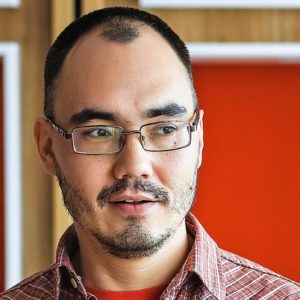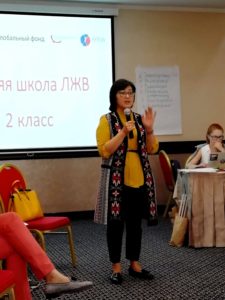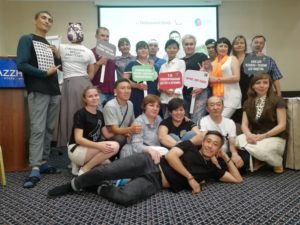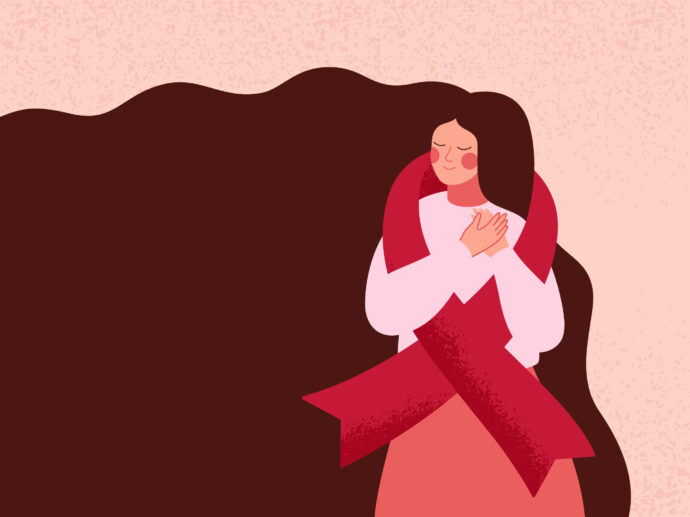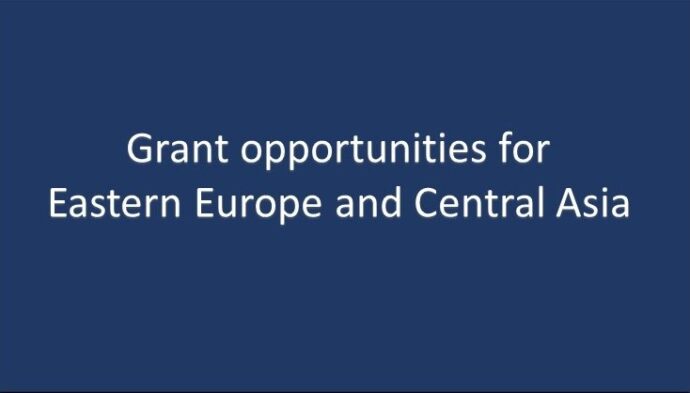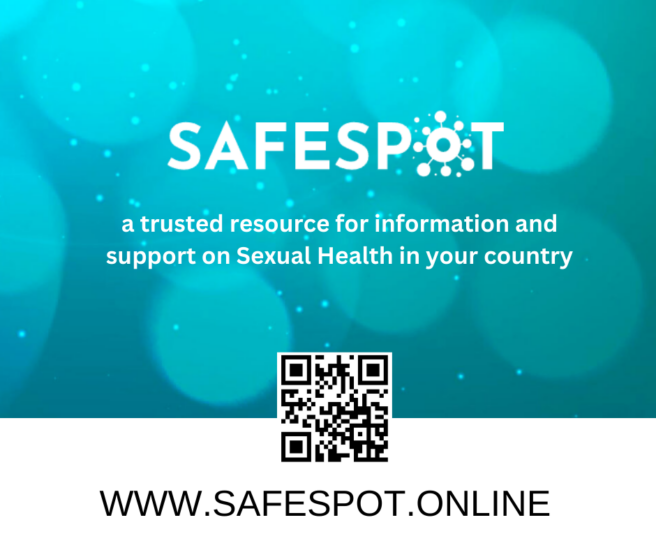Today, the community of people living with HIV (PLWH) in Kazakhstan is actively developing – the voice of community can now be heard at all levels, up to the Ministry of Health and the Parliament.
An important role in achieving this progress belongs to the events for potential activists organized by the Kazakhstan Union of PLWH together with AFEW Kazakhstan. One of them is a series of workshops called “School for People Living with HIV”. Such workshops are aimed at developing the community of PLWH to scale up the advocacy to promote their rights and interests and ensure care and support for PLWH at the local and national levels. They are organized with financial support of the Global Fund to Fight AIDS, Tuberculosis and Malaria within the project “Building Foundation for Sustainable HIV Response in Kazakhstan”. Yagdar Turekhanov, Program Advisor at AFEW Kazakhstan, told about the progress achieved.
Yagdar, what is the School for PLWH and how was it established?
The first workshop of the School for PLWH was held in November 2018 and brought together over 50 PLWH from all over the country. They were “newbies” – most of them just recently learned about their HIV status and did not have any experience of working in HIV organizations. People were enrolled after a competitive selection by motivation letters. It was a basic workshop where the participants learned about HIV, its treatment, and the role of civil society. They also received support in accepting their HIV status, bolstered their self-esteem and confidence. Following the first workshop, 25 most active participants who demonstrated their leadership skills, were selected. The goal of those workshops was to train a young generation of activists and to mobilize the regions to make the PLWH community of Kazakhstan act in a more targeted and coordinated way.
How would you describe the profile of the school participants?
Most trainees of the school are people who earlier had an experience of participating in similar activities, mobilized their peers and established local NGOs, making a significant contribution to the promotion of PLWH rights, reduction of the ART prices, etc.
What is the situation with PLWH rights in Kazakhstan?
The situation is different, and currently it greatly depends on separate individuals – friendly specialists, doctors, police officers, and workers of penitentiary facilities – as well as on the bravery and knowledge of the activists. Where such people are not numerous, the situation with observing the PLWH rights is disastrous.
What should a person do in case if his or her rights are violated?
Be brave enough to talk about it. File the case. Make a precedent. For this purpose, the person may ask more experienced community members and friendly lawyers for help.
Since 2019, Kazakhstan started using the ‘test and treat’ strategy. What does it mean?
For Kazakhstan, this approach, first of all, means breaking the stereotypes, challenging the traditional perceptions and the wide-spread myths about ART. It means fighting the “bonuses schemes”, when people take therapy only to get some incentives, but not because they see the linkage between ART and better quality of life. It includes working with health professionals, who can formally observe the protocols, but in some indirect ways, with their intonations, phrases, or even directly make their patients understand that they do not believe in what they do. E.g., they can often say something like “According to the new rules, I have to prescribe therapy to you, but you can refuse, all the more so because you have pretty good test results and those drugs are chemical anyway” or “I realize that you want to give birth to a child, but still you have to think twice as your husband has HIV and even if he does not transmit the virus to you – what will be the future of your child?” We try to change this kind of approach.
Is there a place for innovations in the PLWH community of Kazakhstan?
The active part of PLWH community is, of course, open to innovations – they are ready to introduce new approaches as soon as they learn about them or come up with them. Most of the general population are kind, empathetic people who are totally unaware of the modern scientific achievements in terms of HIV prevention and treatment. They are afraid for themselves and for their loved ones, thinking that HIV is a death sentence. Many people still think that HIV is transmitted through household contacts (“I know that HIV is not transmitted through air or touch, but just in case I would better protect my children from contacts with HIV-infected people”). It looks like this situation can only be changed by young people who are in their nature more open to new things, more tolerant and less prejudiced. Efforts aimed at young people, primarily at the students of medical colleges and universities, with the involvement of PLWH community, can gradually change the status quo. By the way, it is already happening – slowly but surely.
Will there be any workshops in future? Who will be able to participate in them?
Funding of such activities is currently very doubtful – donors gradually lose their interest to Kazakhstan, while attracting government funding is so far rather challenging. However, PLWH community is looking for new opportunities. Apart from the Schools for PLWH, PLWH camping events are held on a regular basis, where people more and more often pay for their own participation. Information about such events is shared through HIV NGOs, AIDS centers, social networks and messengers. The priority is given to “novices”. More experienced PLWH community members can try on the role of trainers after passing a competitive selection.


